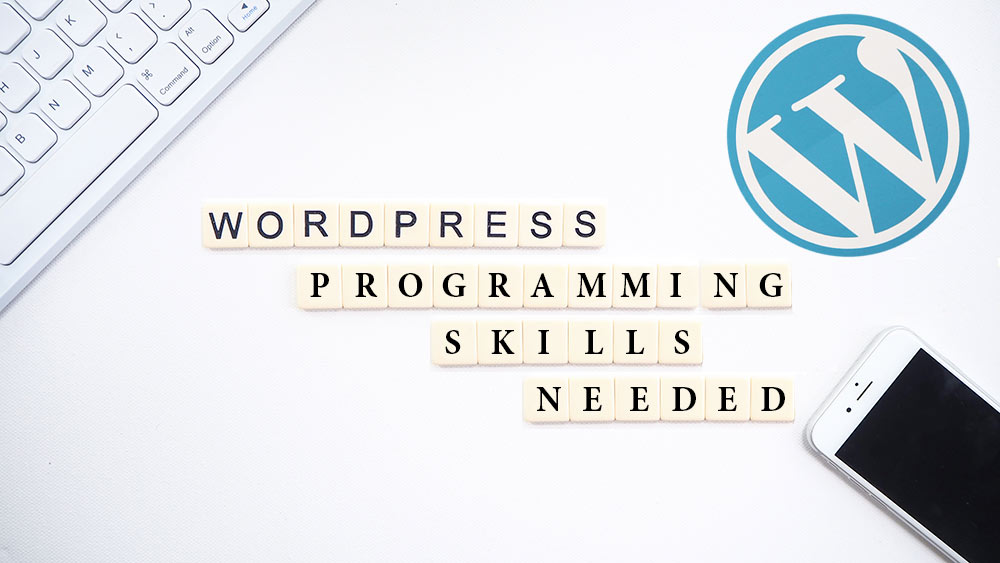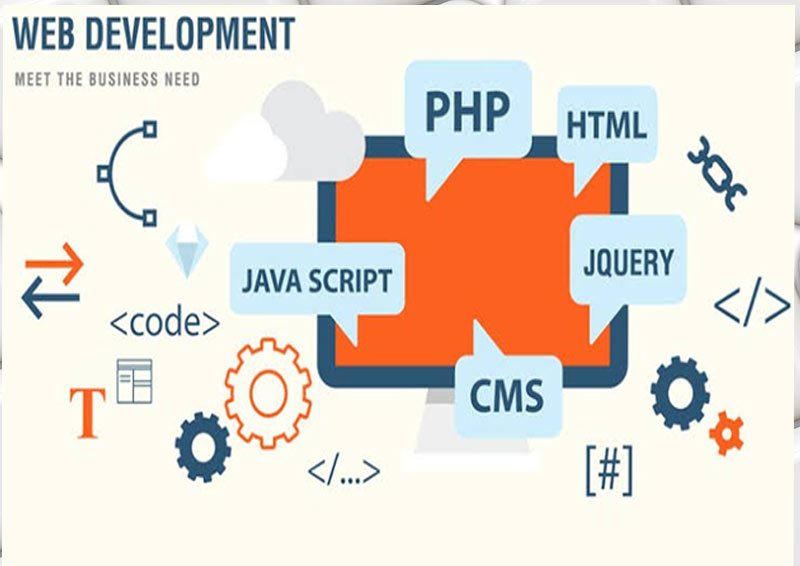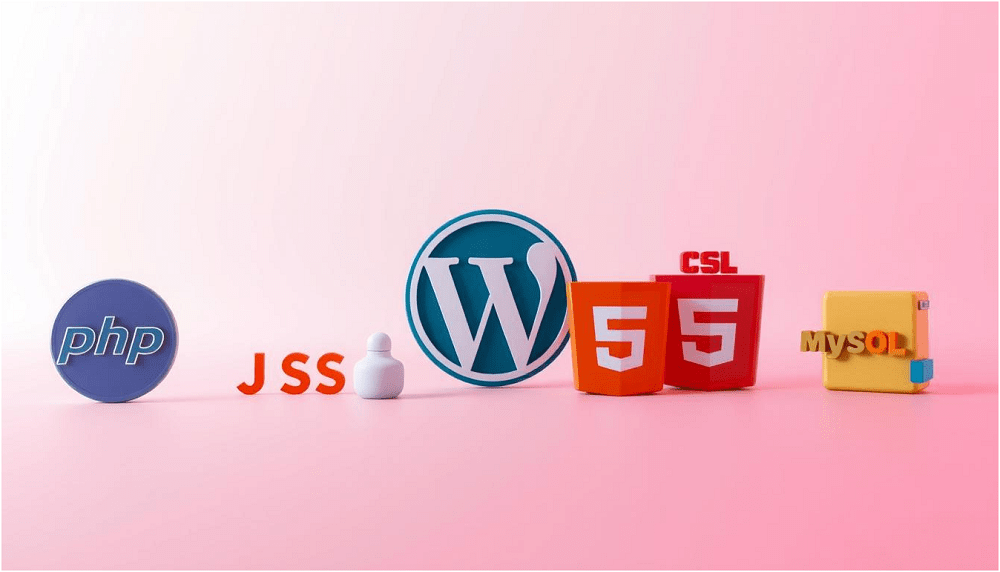Mastering the right programming languages is crucial for successful WordPress development. As the backbone of millions of websites, WordPress requires a deep understanding of its core coding languages to create customized, efficient, and secure web applications.
With the ever-evolving digital landscape, staying up-to-date with the most relevant coding languages for WordPress is essential for developers and businesses alike. This article will guide you through the top programming languages used in WordPress development, helping you to enhance your web development skills.
Key Takeaways
- Understanding the importance of programming languages in WordPress development.
- Identifying the top coding languages used in WordPress.
- Learning how to apply these languages for efficient web development.
- Enhancing your skills to create customized WordPress applications.
- Staying updated with the latest trends in WordPress coding.

Understanding WordPress and Its Programming Foundation
As the most widely used CMS, WordPress offers a unique blend of simplicity and complexity, making it accessible to beginners while powerful enough for seasoned developers. This versatility is rooted in its robust architecture and the extensive ecosystem that surrounds it.
What Makes WordPress a Powerful CMS
WordPress’s power as a CMS stems from its flexibility, scalability, and the vast array of plugins and themes available. It allows users to create complex websites without needing to start from scratch. The extensive library of plugins extends its functionality, enabling features such as e-commerce, SEO optimization, and security enhancements.
The WordPress Technology Stack Overview
The technology stack behind WordPress is primarily built on PHP, HTML, CSS, JavaScript, and SQL. Understanding this stack is crucial for effective WordPress development. The following table provides an overview of the key technologies involved:
|
Technology |
Description |
Role in WordPress |
|
PHP |
Server-side scripting language |
Core programming language for WordPress |
|
HTML/CSS |
Markup and styling languages |
Used for theme development and structuring content |
|
JavaScript |
Client-side scripting language |
Enhances user interface and experience with dynamic effects |
|
SQL |
Database management language |
Manages and queries the WordPress database |
Why Programming Knowledge Enhances WordPress Development
Having a grasp of the programming languages used by WordPress can significantly enhance a developer’s ability to customize, extend, and optimize websites. Programming knowledge allows for more sophisticated theme development and plugin customization, enabling developers to tailor WordPress sites to specific needs.
Moreover, understanding the underlying technologies facilitates troubleshooting and performance optimization, making a developer more efficient and effective in their work.
PHP: The Core WordPress Programming Language
At the heart of WordPress lies PHP, the programming language that powers its core functionality. PHP is a server-side scripting language that has been widely adopted for web development due to its flexibility, scalability, and extensive community support.
Why PHP is Essential for WordPress Development
PHP is essential for WordPress development because it provides the foundation upon which WordPress is built. It enables developers to create custom themes, plugins, and extensions that enhance the functionality and appearance of WordPress sites.
Understanding PHP is crucial for any aspiring WordPress developer, as it allows them to modify and extend the core functionality of WordPress, creating more sophisticated and customized web applications.
Key PHP Concepts Every WordPress Developer Should Know
WordPress developers should be familiar with key PHP concepts such as variables, data types, loops, conditional statements, functions, and object-oriented programming principles.
Additionally, understanding how to work with PHP’s superglobals, such as $_GET, $_POST, and $_SESSION, is vital for handling user input and data storage.
PHP Versions and WordPress Compatibility
WordPress is compatible with various versions of PHP, but it’s essential to keep PHP updated to ensure security and performance. The latest versions of PHP offer improved security features, performance enhancements, and new language features that can benefit WordPress development.
Working with WordPress Hooks and Functions
WordPress hooks and functions are critical PHP elements that allow developers to customize and extend WordPress without modifying its core code. Hooks enable developers to execute custom code at specific points during WordPress execution, while functions provide reusable blocks of code.
Mastering the use of hooks and functions is vital for creating maintainable, efficient, and scalable WordPress plugins and themes.

HTML and CSS: Building the Visual Structure
In WordPress development, mastering HTML and CSS is essential for building visually appealing and responsive websites. These technologies are crucial for creating the visual structure and user interface of WordPress sites.
HTML’s Role in WordPress Theme Development
HTML (Hypertext Markup Language) is the backbone of any website, including those built on WordPress. It provides the structural foundation upon which content is displayed. In WordPress theme development, HTML is used to define the different elements of a webpage, such as headings, paragraphs, and links.
CSS and Styling WordPress Websites
CSS (Cascading Style Sheets) is used to control the layout and visual styling of WordPress websites. It allows developers to apply consistent styling across a site, including colors, fonts, and spacing. Effective use of CSS is key to creating a cohesive and attractive user interface.
Responsive Design Principles for WordPress
With the majority of web traffic coming from mobile devices, responsive design is crucial. CSS plays a vital role in making WordPress sites responsive, ensuring they adapt seamlessly to different screen sizes and devices.
CSS Preprocessors in WordPress Development
CSS preprocessors like Sass and Less offer additional functionality to CSS, making it more efficient and modular. They allow developers to use variables, nested rules, and functions, which can significantly streamline the development process.
JavaScript: Adding Dynamic Functionality
As WordPress continues to grow, JavaScript’s importance in creating interactive web experiences has become more pronounced. JavaScript enables developers to add dynamic elements to their websites, enhancing user engagement and overall site functionality.
JavaScript’s Growing Importance in WordPress
JavaScript has evolved from a supplementary scripting language to a core component of WordPress development. Its ability to create interactive web pages, respond to user input, and update content dynamically has made it indispensable. Modern WordPress themes and plugins heavily rely on JavaScript to provide a rich user experience.
jQuery and Its Role in WordPress
jQuery, a JavaScript library, simplifies the process of interacting with HTML documents, handling events, and developing Ajax interactions. In WordPress, jQuery is used extensively for its simplicity and compatibility. It allows developers to write concise and efficient code, making it easier to implement complex functionalities.
Modern JavaScript Frameworks in WordPress Development
Modern JavaScript frameworks like React and Vue.js are increasingly being used in WordPress development. These frameworks offer structured approaches to building complex user interfaces and managing state changes efficiently.
AJAX in WordPress Applications
AJAX (Asynchronous JavaScript and XML) is used in WordPress to enable asynchronous updates to web pages, improving user experience by reducing page reloads. WordPress developers use AJAX to create more responsive and interactive applications, such as live content updates and dynamic form submissions.
By leveraging JavaScript, jQuery, and modern frameworks, WordPress developers can create highly interactive and dynamic websites that engage users and provide a superior browsing experience.

SQL: Managing WordPress Databases
SQL plays a vital role in managing and optimizing WordPress databases. A well-structured database is crucial for the performance and security of a WordPress site.
Understanding WordPress Database Structure
The WordPress database is composed of several tables that store different types of data. Understanding this structure is essential for effective database management. The database schema includes tables for posts, pages, users, and more.
Essential SQL Queries for WordPress Developers
Knowledge of SQL queries is necessary for manipulating data within the WordPress database. Common queries include those for retrieving specific posts, modifying user permissions, and optimizing database performance.
Database Optimization Techniques
Optimizing the WordPress database involves several techniques, including cleaning up unnecessary data, optimizing queries, and ensuring proper indexing. Regular optimization can significantly improve site performance.
Secure Database Operations in WordPress
Security is a critical aspect of database management. Using prepared statements and limiting database privileges can help prevent SQL injection attacks and other security threats.
|
Database Operation |
Security Measure |
Benefit |
|
Query Execution |
Prepared Statements |
Prevents SQL Injection |
|
User Management |
Limit Privileges |
Reduces Risk of Unauthorized Access |
|
Data Backup |
Regular Backups |
Ensures Data Recovery |
By understanding and implementing these SQL and database management practices, WordPress developers can ensure their sites are both performant and secure.

WordPress Programming Languages: How They Work Together
To master WordPress development, one must understand how its core programming languages work together. WordPress, as a Content Management System (CMS), relies on a synergy of different programming languages to provide a robust and flexible platform for web development.
The various languages used in WordPress development don’t work in isolation; instead, they complement each other to create a comprehensive development environment. PHP forms the backbone of WordPress, handling core functionality, while HTML and CSS are crucial for theme development and the visual structure of websites. JavaScript adds dynamic functionality, and SQL manages database operations.
The WordPress Development Stack
The WordPress development stack typically includes PHP, HTML, CSS, JavaScript, and SQL. Understanding how these languages interact is key to effective WordPress development. For instance, PHP generates dynamic content that is then styled by CSS and made interactive by JavaScript.
Language Integration in Theme Development
In theme development, HTML provides the structural foundation, CSS handles the styling, and PHP integrates dynamic content generated by WordPress. JavaScript is often used to add interactivity to themes, enhancing user experience. The seamless integration of these languages allows developers to create sophisticated, responsive, and user-friendly themes.
Plugin Development and Multiple Languages
Plugin development often involves multiple programming languages. PHP is used to create the core functionality of plugins, while JavaScript may be employed for client-side interactions. Understanding how to integrate these languages is crucial for developing powerful and efficient plugins.
Full-Stack WordPress Development Approach
Adopting a full-stack WordPress development approach means having a comprehensive understanding of both front-end and back-end development. This includes proficiency in languages like PHP for back-end development, and HTML, CSS, and JavaScript for front-end development. Such an approach enables developers to tackle a wide range of tasks, from theme customization to plugin development and database management.
By understanding how different WordPress development languages work together, developers can create more efficient, scalable, and maintainable WordPress projects. This holistic understanding is essential for advancing in WordPress development and staying competitive in the field.
Learning Paths for WordPress Developers
Embarking on a journey to become a proficient WordPress developer requires a structured learning path. As WordPress continues to evolve, the demand for skilled developers who can create robust, user-friendly websites has never been higher.
To master WordPress development, aspiring developers must progress through various stages of learning and skill acquisition. This progression is crucial for staying up-to-date with the latest technologies and best practices in the field.
Beginner to Advanced Progression
The journey begins with understanding the basics of WordPress, including its core functions, themes, and plugins. As developers gain experience, they can move on to more advanced topics such as theme development, plugin creation, and customization. Learning WordPress development involves a gradual progression from basic to advanced levels, with each stage building upon the previous one.
Specialized Skills Development
As developers advance, they can specialize in specific areas such as WooCommerce development, WordPress multisite management, or advanced plugin development. WordPress programming tutorials can provide the necessary guidance for acquiring these specialized skills. Specialization can significantly enhance a developer’s career prospects and earning potential.
Certifications and Formal Education
While formal education is not always necessary, certifications and structured courses can provide a solid foundation and recognition in the industry. Many organizations offer WordPress developer training programs that cover various aspects of WordPress development.
Building Real-World Projects for Practice
One of the most effective ways to learn WordPress development is by working on real-world projects. This hands-on experience helps developers apply theoretical knowledge to practical problems, enhancing their skills and confidence. By building diverse projects, developers can demonstrate their capabilities to potential employers or clients.
|
Skill Level |
Key Skills |
Learning Resources |
|
Beginner |
WordPress basics, HTML, CSS |
Online tutorials, WordPress documentation |
|
Intermediate |
Theme development, plugin basics, JavaScript |
Courses on Udemy, Skillshare |
|
Advanced |
Advanced plugin development, REST API, Gutenberg block development |
Advanced courses, WordPress community forums |
Advanced WordPress Development Technologies
Advanced WordPress development is now more powerful than ever, thanks to cutting-edge technologies like REST API and Gutenberg block development. These advancements are transforming the way developers build, manage, and scale WordPress websites.
REST API and Headless WordPress
The REST API has revolutionized WordPress development by allowing developers to interact with the WordPress backend using RESTful APIs. This enables the creation of headless WordPress sites, where the frontend is decoupled from the backend, offering greater flexibility in choosing frontend frameworks and technologies.
Gutenberg Block Development
Gutenberg block development has changed the way content is created and managed in WordPress. By developing custom blocks, developers can provide users with more intuitive and flexible content creation tools, enhancing the overall user experience.
WordPress CLI and Automation
The WordPress CLI is a powerful tool for automating many development tasks, from installing plugins and themes to managing site updates. It streamlines the development process, saving time and reducing the potential for human error.
Version Control and Deployment Workflows
Effective version control and deployment workflows are crucial in advanced WordPress development. Tools like Git enable developers to track changes, collaborate on projects, and deploy updates efficiently. By integrating version control into their workflow, developers can ensure that their WordPress sites are stable, secure, and up-to-date.
By embracing these advanced technologies, WordPress developers can create more sophisticated, scalable, and maintainable websites, staying ahead in the ever-evolving landscape of web development.
Career Opportunities with WordPress Programming Skills
Acquiring WordPress programming skills can significantly enhance one’s career prospects in the tech industry. With a strong foundation in WordPress development, individuals can access a variety of job roles and career paths that are both challenging and rewarding.
Job Roles for WordPress Developers
WordPress developers can explore numerous job opportunities across different sectors. Some of the prominent roles include:
Theme Developer: Responsible for creating custom WordPress themes for clients or companies.
Plugin Developer: Focuses on developing plugins to extend the functionality of WordPress sites.
Front-end Developer: Works on the user interface and user experience (UI/UX) of WordPress websites.
Freelancing vs. Agency Work
WordPress developers have the flexibility to choose between freelancing and working with agencies. Freelancing offers the freedom to select projects and clients, potentially leading to higher earnings. On the other hand, agency work provides a stable income and the opportunity to work on diverse projects within a team environment.
Building a WordPress Development Portfolio
A strong portfolio is crucial for showcasing skills to potential employers or clients. It should include a variety of projects that demonstrate proficiency in different aspects of WordPress development, such as theme customization, plugin development, and responsive design.
Salary Expectations and Career Growth
The salary for WordPress developers can vary based on factors like location, experience, and the type of projects they work on. According to industry reports, the average salary for a WordPress developer in the United States ranges from $50,000 to over $100,000 per year, depending on experience and specialization.
Career growth prospects are also promising, with opportunities to move into senior development roles, lead projects, or even start a WordPress development agency.
Conclusion: Mastering WordPress Programming Languages
Mastering WordPress programming languages is crucial for creating dynamic, user-friendly, and highly functional websites. By understanding the core languages that power WordPress, including PHP, HTML, CSS, JavaScript, and SQL, developers can unlock the full potential of this versatile CMS.
Acquiring wordpress development skills not only enhances a developer’s career prospects but also enables them to deliver high-quality solutions that meet the evolving needs of users. The best programming languages for wordpress development are those that allow for seamless integration, flexibility, and scalability.
As the digital landscape continues to evolve, the demand for skilled WordPress developers will remain strong. By continuing to learn and expand their expertise in mastering wordpress programming languages, developers can stay ahead of the curve and capitalize on emerging trends and opportunities.
FAQ
Q1: What programming languages are used in WordPress development?
The primary programming languages used in WordPress development are PHP, HTML, CSS, JavaScript, and SQL. These languages work together to create a robust and dynamic website.
Q2: Is PHP still relevant for WordPress development?
Yes, PHP is still the core programming language of WordPress and is essential for developing custom themes, plugins, and modifying existing code.
Q3: Can I develop a WordPress website without knowing how to code?
While it’s possible to create a basic WordPress website without coding knowledge using page builders and pre-made themes, having programming skills can significantly enhance customization and development capabilities.
Q4: What is the role of JavaScript in WordPress development?
JavaScript is used in WordPress to add dynamic functionality to websites, including interactive elements and AJAX-powered features. Modern JavaScript frameworks and libraries like jQuery are commonly used.
Q5: How important is SQL in WordPress development?
SQL is crucial for managing WordPress databases, performing queries, and optimizing database performance. Understanding SQL is essential for developing complex plugins and themes.
Q6: Can I use other programming languages with WordPress?
While PHP, HTML, CSS, JavaScript, and SQL are the primary languages used in WordPress, other languages like Python or Ruby can be integrated using REST APIs or other interfaces.
Q7: What are the best resources for learning WordPress programming languages?
Official WordPress documentation, online tutorials, coding courses, and developer communities are excellent resources for learning WordPress programming languages.
Q8: How do I stay updated with the latest WordPress development trends and technologies?
Following WordPress development blogs, attending conferences, participating in online forums, and engaging with the WordPress community can help stay updated on the latest trends and technologies.
Q9: What are the career prospects for WordPress developers with programming skills?
WordPress developers with programming skills can pursue various career paths, including freelancing, agency work, and full-time employment, with opportunities for career growth and competitive salaries.















